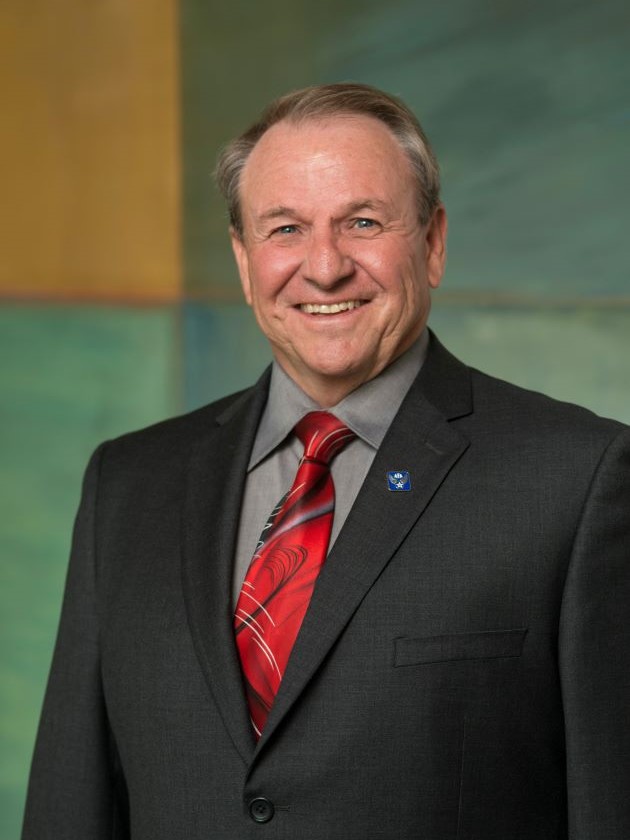
Participants engaged with various global organizations and institutions like the World Health Organization, the World Trade Organization, the United Nations’ Human Rights Council and Caterpillar, which is headquartered in Geneva. They also took a tour of the Geneva Medical School and healthcare system.

“In doing so, they gained insights into how a healthcare system operates outside of the U.S. and were inspired to implement changes in their own operations,” said Don Taylor, a professor of practice in the Jindal School’s Executive Education Area and APL program director. “The trip also deepened their understanding of global health policies, the role artificial intelligence can play in healthcare, and the value of international collaboration. It’s going to influence the way they look at health and healthcare.

Taylor said the Swiss healthcare system is more focused on health while the U.S. system is more focused on healthcare.
“For the Swiss, healthcare is just a means to do it, but health is really their outcome,” he said. “In the United States, it’s about healthcare because the business dominates. One great outcome from the trip is that the students are going to bring in all that additional insight into the American healthcare system.”

The students, all of whom are accomplished healthcare leaders in the U.S., raved about their Switzerland experiences. Dr. Sarah N. Bowe, a pediatric otolaryngologist, vice chair of the Department of Surgery in the Brooke Army Medical Center at San Antonio, and associate professor of surgery in the Uniformed Services University of the Health Sciences, said the experience the group had with the WHO was fascinating.
“I don’t think that the work that they are doing really makes it into the awareness of U.S. physicians,” she said. “I was incredibly inspired by the work that they are doing at the forefront of artificial intelligence, recognizing its potential for both power and misuse.”
Dr. Omesh Singh, associate chief medical officer with the Centre for Neuro Skills and an internal medicine physician said the interaction he and the group had with another healthcare system was the most influential experience of his entire career.
“I feel this should be mandatory and would be honored to be able to attend a future trip,” said Singh, who is chairman of the board for TIOPA Inc., an independent, physician-owned Independent Practice Association (IPA) based in Texas. “It has given me better perspective and appreciate some things we have but also makes me realize that other things need to change.”
Dr. Sarah Titler, a clinical associate professor of anesthesia specializing in pediatric anesthesia, and acute pain and regional anesthesia at the University of Iowa Carver College of Medicine, said the trip was by far one the best experiences of her professional career because it gave her a better understanding of the challenges faced by healthcare systems throughout the world and how they are different and similar in the U.S.
“I returned with several ideas and plans to implement change at my institution, or ways I may affect change in my national society after my visit to Geneva,” she said. “I hope this trip not only changes me as a physician, but also changes how I might impact the delivery of medicine in the U.S.”
Taylor said that it is important that healthcare professionals understand that health is no longer defined by political borders or even geography.
“We all learned recently that a world health crisis can start anywhere, anytime, and that global collaboration is necessary to respond,” he said. “Courses like this help these physicians understand that their leadership can influence health globally, if they can expand their perspective. This type of outreach by the APL is important to the program, JSOM, The University of Texas at Dallas and future health across the globe.”






